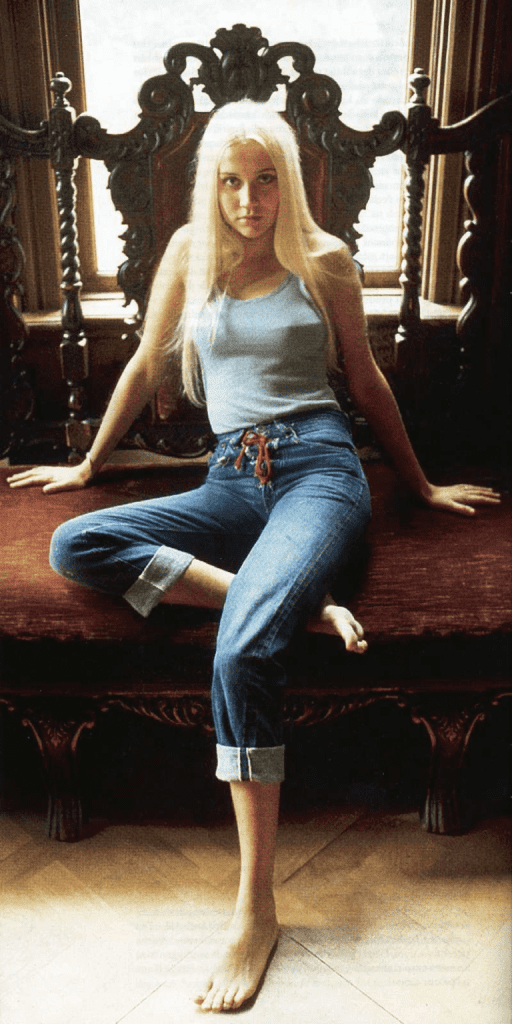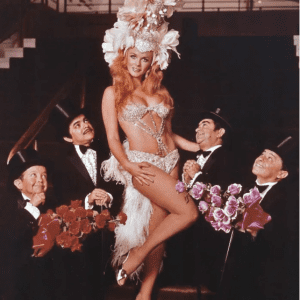Early Life: A Swedish Songbird Takes Flight
Agnetha Åse Fältskog was born on April 5, 1950, in Jönköping, Sweden. From a young age, her affinity for music was unmistakable. Raised in a musical household, her father, Ingvar, supported her early passion, and she began composing songs on the piano as early as six years old. By the age of ten, she had formed her first musical group with friends, showcasing the innate talent and drive that would eventually captivate the world.

Her early influences were drawn from rock and pop legends such as Connie Francis and Petula Clark, as well as the soulful harmonies of traditional Swedish music. This unique blend of inspiration laid the foundation for her future sound—emotionally rich, melodic, and timeless.

First Steps in Music: Solo Success Before ABBA
Before becoming an international pop icon, Agnetha Fältskog had already made a name for herself in Sweden. At just 17 years old, she released her debut single “Jag var så kär” (“I Was So in Love”) in 1967. The track climbed the Swedish charts and quickly established her as one of the country’s most promising young talents.

By the late 1960s, she had released several successful solo albums, written much of her own material, and earned a reputation for her powerful voice and emotive delivery. Her ability to express vulnerability and heartache in song resonated deeply with audiences. Her solo work during this era reflected a maturity well beyond her years and positioned her as a standout artist in the Scandinavian pop scene.
Video: ABBA – Agnetha Fältskog – Swedish Grace And Beauty
The Formation of ABBA: A Global Musical Phenomenon
The 1970s marked a turning point not just for Agnetha, but for pop music worldwide. Together with Björn Ulvaeus, Benny Andersson, and Anni-Frid Lyngstad, Agnetha formed the group ABBA, an acronym formed from the initials of their first names.

The quartet’s breakthrough came with their victory at the 1974 Eurovision Song Contest with “Waterloo.” The song’s infectious energy and their dynamic stage presence launched them into global superstardom almost overnight.

Agnetha’s crystal-clear vocals became a signature element of ABBA’s sound. Whether it was the joyous “Dancing Queen,” the poignant “The Winner Takes It All,” or the haunting “S.O.S.,” her voice carried the emotional weight of the group’s most memorable hits. Her onstage charisma, coupled with her golden blonde hair and radiant smile, made her a fan favorite around the world.

Life Behind the Spotlight: Fame and Personal Struggles
While ABBA’s success brought global fame and fortune, it also came at a personal cost. Agnetha often struggled with the pressures of touring, media scrutiny, and the constant demands of public life. Her deep-seated fear of flying made extensive travel particularly difficult, and she was known to suffer from anxiety related to the group’s rigorous schedule.

Her marriage to fellow ABBA member Björn Ulvaeus in 1971 added a layer of personal complexity to their professional lives. Though the couple had two children together—Linda and Christian—their relationship eventually succumbed to the pressures of fame and ended in divorce in 1980. Despite their separation, the group continued working together professionally for several more years, a testament to their commitment and artistic unity.

Post-ABBA Years: Solitude, Reflection, and Return to Music
After ABBA disbanded in 1982, Agnetha chose a life of relative seclusion. While her former bandmates continued in the entertainment industry, she withdrew from the public eye, focusing on her family and personal well-being. This retreat from fame only deepened the intrigue surrounding her.
She released a handful of solo projects during this period, including Wrap Your Arms Around Me (1983) and Eyes of a Woman (1985), both of which achieved considerable success in Europe. Her songs during this era often reflected a more introspective and personal tone, capturing the essence of a woman navigating life after stardom.

Her 2004 comeback album, My Colouring Book, featured covers of songs that influenced her early life and musical development. The album was warmly received and marked a triumphant return for the enigmatic star. Critics praised her vocal purity and the emotional honesty of the performances.
Video: Agnetha Faltskog – How cute and adorable was and is she ? EXTREMELY
ABBA’s Resurgence and the Digital Age
Despite years of silence, ABBA’s music never faded from cultural relevance. Thanks to global phenomena like the Mamma Mia! stage musical and its subsequent film adaptations, the group gained a new generation of fans. Agnetha’s voice once again took center stage in households around the world, proving that great music transcends time.
In 2021, ABBA made headlines with the release of Voyage, their first studio album in 40 years. Agnetha’s vocals shone brightly on tracks such as “I Still Have Faith in You” and “Don’t Shut Me Down.” The project included a groundbreaking concert series in London featuring “ABBAtars”—digital versions of the group members performing with a live band. This bold reimagining of live music introduced ABBA to the digital frontier and reaffirmed their status as pioneers.

Present Life: Graceful Legacy and Artistic Integrity
Now in her seventies, Agnetha Fältskog lives a quiet and private life in Sweden, far from the glare of paparazzi. She remains selective about her public appearances but continues to engage with fans and the media through carefully chosen interviews and projects.
She released a deluxe version of her 2013 solo album A in 2023, offering fans new material and reaffirming her commitment to music on her own terms. Her enduring elegance, humility, and artistic discipline have earned her respect not just as a singer, but as a woman who has lived life on her own terms.

She continues to support various charities and remains an inspiration to aspiring musicians, especially women navigating the challenges of the entertainment industry. Her story reminds us that success doesn’t require constant visibility—it demands authenticity, passion, and resilience.

Legacy: A Voice That Echoes Across Generations
Agnetha Fältskog’s journey from a small-town girl in Sweden to an international music legend is a testament to the power of talent, determination, and emotional authenticity. Her voice defined a generation and continues to inspire millions.
She is more than just a member of ABBA—she is a symbol of strength, an advocate for personal boundaries, and a living example of how one can thrive creatively without conforming to the spotlight’s every demand.

Conclusion: Timeless Talent, Quiet Power
Agnetha Fältskog stands as one of the most iconic and beloved figures in modern music history. Her ability to convey deep emotion through song, her resilience in the face of overwhelming fame, and her graceful retreat from the public eye all contribute to a legacy that is as powerful as it is poetic.
Today, as we listen to her soaring melodies and reflective lyrics, we are reminded that true artistry lies in the connection between voice and soul. And in that realm, Agnetha Fältskog continues to reign supreme.

Here are some great photos of her:







